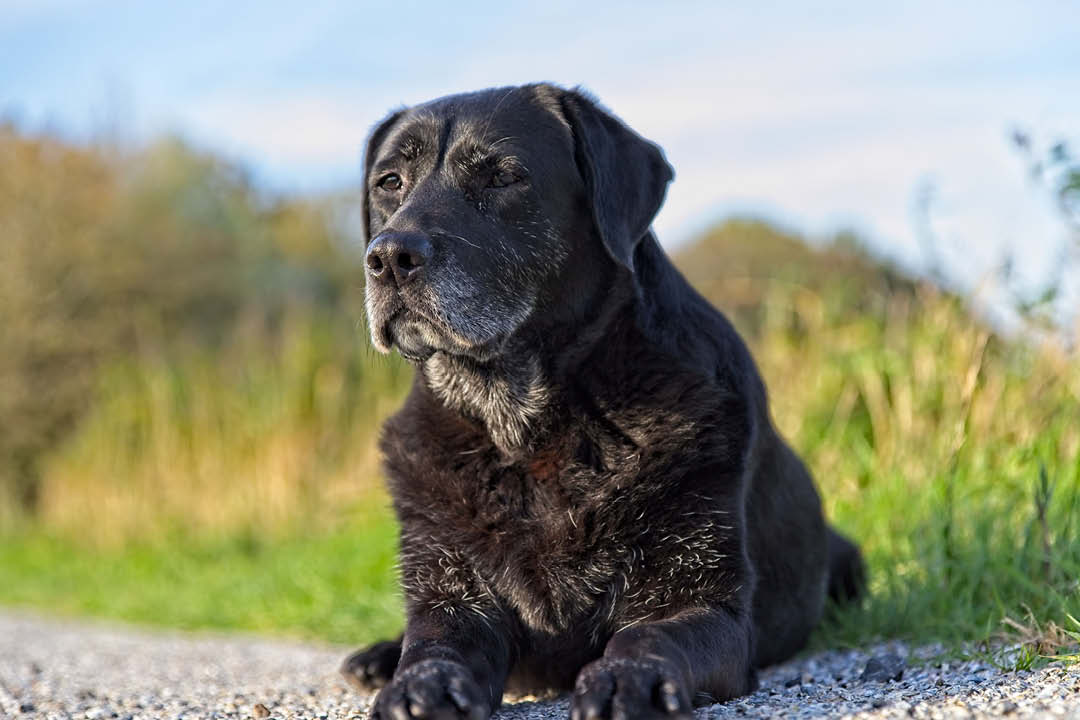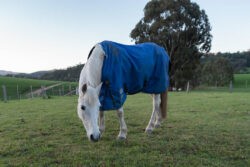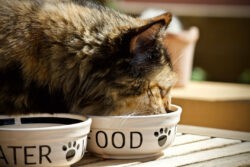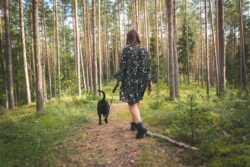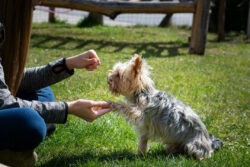As your pet gets older you will need to give them a little more care and attention.
Ageing is not something to be afraid of — with modern veterinary knowledge and skills, our companions can now live happily for longer than they used to.
Older pets can feel the cold a little more than they did when they were younger. Provide your dog or cat with a cosy warm bed that they can snuggle up in. Make sure that it is away from draughts and close to a heat source. Look out for self-heating fleecy pads that you can place on top of their usual bed. These have a heat reflecting inner layer which will help keep your pet warmer when the temperatures drop. Senior cats love the fleece covered beds that hang on radiators!
Regular health checks with your vet are invaluable as the years tick on. If he or she picks up on any health issues early there will be a better chance of successful treatment, keeping your four-legged friend healthier for longer. Dental care may be required as teeth become worn and gums prone to disease.
Just like us humans, older dogs and cats’ joints can be prone to wear and tear. Your dog may gradually slow on his walks and over time you’ll find yourselves taking shorter walks. But though dogs may show stiffness in their gait, cats are particularly adept at hiding pain and discomfort despite having arthritis — another reason for an annual or bi-annual visit to the vet once your pet reaches their senior years.
The good news is that there are a variety of solutions available to help with age-related problems so they don’t have to suffer. Cats and dogs — and other pets — respond well to complimentary therapies including Reiki and acupuncture for example.
As your pet ages, you may need to make adjustments around your home to make things easier for them to get about. Help your pet to access his favourite places – the sofa, the windowsill or your bed — by creating steps up with a low stool for example if jumping up and down has become difficult. Your dog may appreciate a ramp so that he can access the back of your car without being lifted.
GOOD NUTRITION
A good quality diet suited to their specific needs will help with the ageing process. Your vet will be able to give you advice for your individual pet, according to their health and condition, weight and exercise levels. Senior pet food has an altered balance of nutrition, with a focus on boosting the immune system, improving palatability as appetites drop, and making kibble easier to chew. Choose a food that your pet enjoys and keep an eye on their weight. Speak to your vet if your pet gains or loses weight, and if they drink more than usual, just in case it’s a sign of illness.
DID YOU KNOW?
Many pet food manufacturers class cats as senior from the age of eight and dogs from the age of seven.
